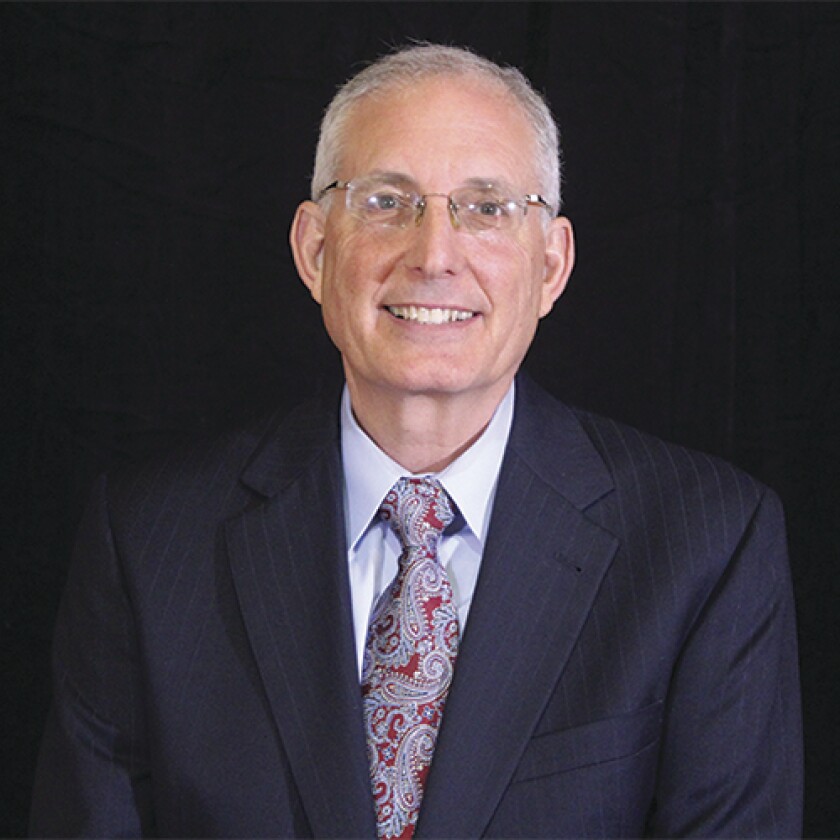
Coronavirus has given risk tolerance a whole new meaning.
During a month of intense stress and market volatility, RIAs and brokerage offices across the country went silent as staff began working from home. Firms known for their recruiting stopped recruiting. Advisors who would otherwise meet with clients face-to-face instead canceled in-person meetings lest they spread the virus.
These are just some of the ways the pandemic has radically changed wealth management, forcing advisors and firms to do the unthinkable in the face of a fast-spreading outbreak. Planners say they may eschew conferences even when the pandemic has passed, meaning they’ll look to remote offerings for CE credits such as webinars. Virtual office visits may replace in-person meetings for recruits. Clients and advisors alike are becoming much more comfortable with Zoom meetings.
It could just be the beginning, too.
As markets tanked in March, David Witter, founder and CEO of Financial Harvest Wealth Advisors, had to redraft his firm’s budget for 2020.
“I am factoring in a 30% decline in top-line revenue. I hope that holds because if this continues to go down, I might have to adjust again,” says Witter, who is based in Winter Park, a suburb of Orlando. “There are places where I can save on expenses. But in this business, it’s just people, the rent and technology. There’s not a lot of room to adjust there.”
Other advisors are confronting similar revenue headwinds. About three-out-of-four wealth managers say they’ve seen declines at their company, according to a survey by Arizent, owner of Financial Planning.
Witter says this is no time to let staff go; clients need his 7-person team’s services more than ever. To get through the downturn, he’ll rely on stockpiled savings, a lesson he learned during the financial crisis, he says. And quality client service today may benefit his firm after the crisis abates.
“Look, it’s scary. It messes with your psychology. And we end up focusing on the threats. So it’s hard to think about the opportunities,” Witter says.
Witter says providing a high level of service to existing clients can help him win new business after the pandemic ends based on how his team handled the current crisis. He’s also sticking with his advertising budget and a website overhaul.
"I thought about cutting back, but I decided not to. This is preparing for the recovery now," he says.
Some firms have made commitments to forego layoffs even as other industries, such as hospitality and retail, furlough workers in droves.
RBC Chief Executive Office Dave McKay announced there would be no job losses at his company in 2020. The firm employs roughly 2,000 financial advisors in the U.S. “This is one of the most critical moments for RBC and our industry. Your work has never been more important,” McKay wrote in a letter to employees.
Yet though jobs may remain intact, career milestones are being postponed. Wealth management conferences have been canceled, costing advisors opportunities to network and earn CE credits. Exams for professional credentials, such as the CFP and CFA, have been canceled or delayed, potentially crimping the growth of certified staff for wealth management firms.
CEO Scott Holley employs several CFPs and CFAs at his firm, SBC Wealth. He expects that in lieu of getting CE credits at say conferences, trade groups and certifying organizations will offer that professional education through video conferencing or online courses.
“The longer this continues, organizations will have to be more creative,” he says.
And more changes may be around the bend. Recent events show how quickly the virus has caught many advisors and firms off-guard. By early March, some advisors started canceling trips, both business and personal. As the number of confirmed infected rose, wealth management firms applied ever tighter restrictions on travel — and then they upped the ante. Edward Jones, known for its door-to-door approach to client acquisition, restricted access to its branches on March 17 and asked its roughly 18,000 advisors to forego face-to-face meetings.
Advisors, meanwhile, are adapting as best they can. In lieu of face-to-face meetings with clients, they’re taking to video conferencing. Holley says his staff is using whatever technology clients are most comfortable with.
“Regular communications help temper the emotions people have in times like this. And we know that fear and panic never lead to good outcomes,” says Holley, whose Indianapolis-based firm serves about 850 families.
To align with social distancing recommendations, Witter’s team changed its monthly coffee talk with clients to a webinar for the roughly 150 households they serve.
The firm’s CEO told staff there would be no headcount reduction in 2020 even as other industries have furloughed workers in droves.
It's the largest IBD recruiting move announced so far this year, and it may not be surpassed any time soon due to the pandemic.
The passage extends the IRA contribution deadline and waives RMDs for 2020. Here’s what else financial advisors need to know.
Firms known for their recruiting efforts, such as Philadelphia-based Janney Montgomery Scott, have experimented with virtual office visits for prospective hires. “Digital home office visits won’t replace the personal experience in Philadelphia, but going forward we may use them more and more,” says Jeff Smith, director of recruiting and business development at Janney which has approximately 850 advisors.
The firm brought on a few recruits in early March, but other incoming new hires have delayed start dates. Recruiters say hiring efforts have slowed down across the industry.
Holley says his firm is not planning on reducing staff. In fact, he is interviewing for an open position on his team (albeit not in-person). It’s important to have employees on deck when clients need you most, he says.
“These are trying times for staff. They are taking more calls. They have their daily functions to perform, but everything is getting ramped up,” Holley says.
Doug Kentfield, head of wealth management at Steward Partners, a firm with more than 100 advisors, says his employees have increased client communications across a variety of platforms. “Any time there is market turmoil, advisors’ biggest concern is staying connected to clients.”
Being an advisor in this environment is a 24/7 job, Kentfield says.
Other advisors agree.
Client calls have been nonstop for Jarrod Rutledge, an advisor at IHT Wealth Management who spoke with Financial Planning in March.
“It’s not necessarily that they are calling because they are panicking or wanting to sell, but they want to talk to someone,” Rutledge says. “I’ve almost lost my voice talking to clients.






